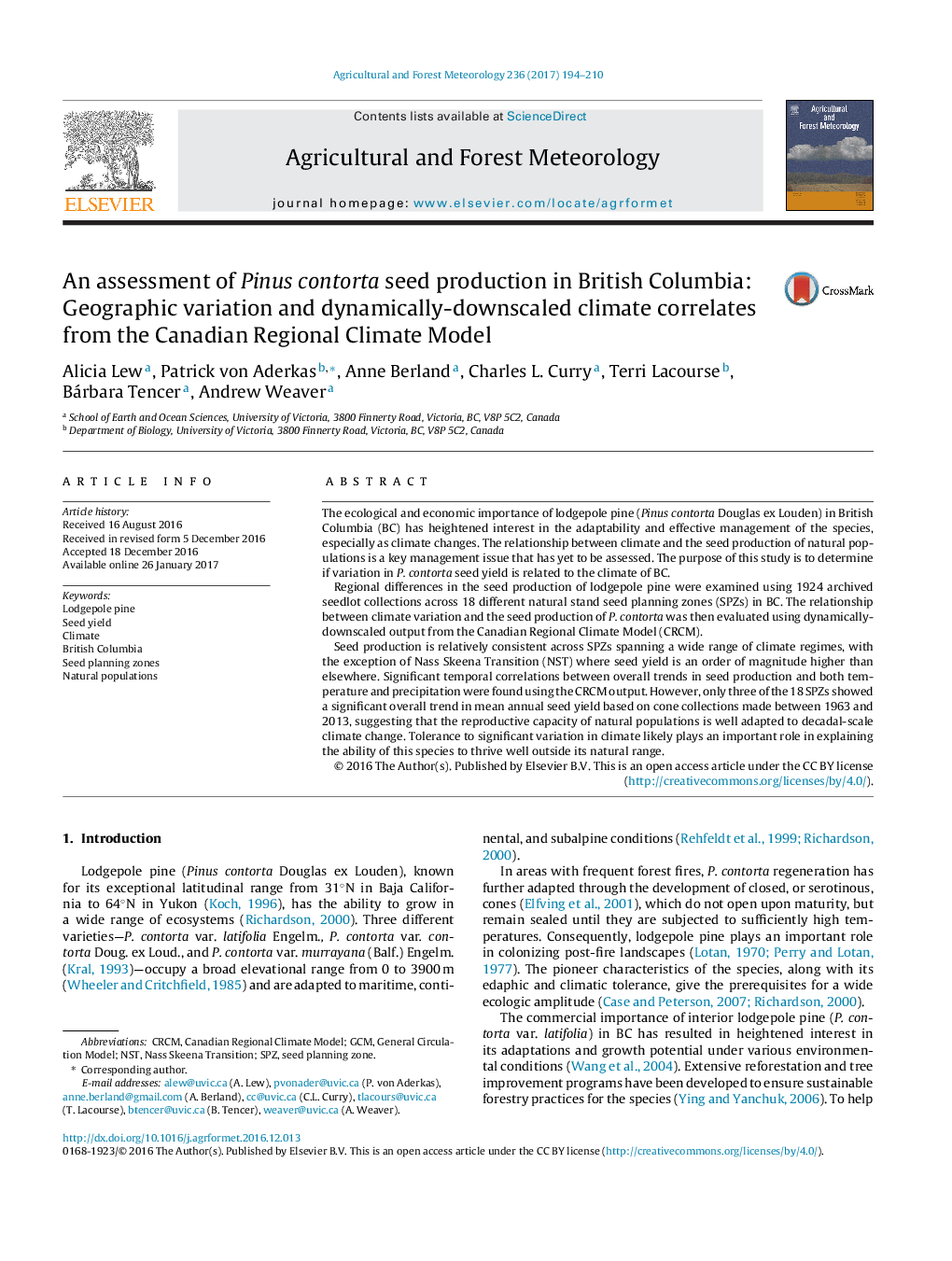| Article ID | Journal | Published Year | Pages | File Type |
|---|---|---|---|---|
| 6458052 | Agricultural and Forest Meteorology | 2017 | 17 Pages |
The ecological and economic importance of lodgepole pine (Pinus contorta Douglas ex Louden) in British Columbia (BC) has heightened interest in the adaptability and effective management of the species, especially as climate changes. The relationship between climate and the seed production of natural populations is a key management issue that has yet to be assessed. The purpose of this study is to determine if variation in P. contorta seed yield is related to the climate of BC.Regional differences in the seed production of lodgepole pine were examined using 1924 archived seedlot collections across 18 different natural stand seed planning zones (SPZs) in BC. The relationship between climate variation and the seed production of P. contorta was then evaluated using dynamically-downscaled output from the Canadian Regional Climate Model (CRCM).Seed production is relatively consistent across SPZs spanning a wide range of climate regimes, with the exception of Nass Skeena Transition (NST) where seed yield is an order of magnitude higher than elsewhere. Significant temporal correlations between overall trends in seed production and both temperature and precipitation were found using the CRCM output. However, only three of the 18 SPZs showed a significant overall trend in mean annual seed yield based on cone collections made between 1963 and 2013, suggesting that the reproductive capacity of natural populations is well adapted to decadal-scale climate change. Tolerance to significant variation in climate likely plays an important role in explaining the ability of this species to thrive well outside its natural range.
